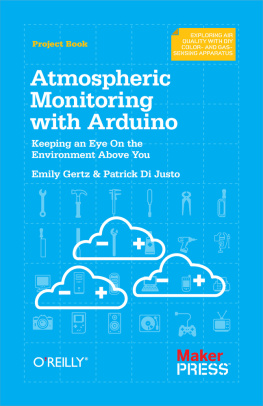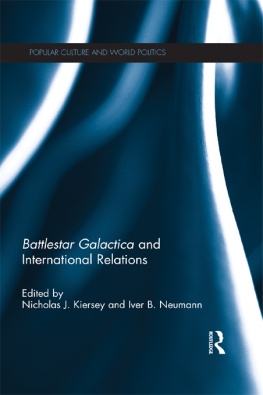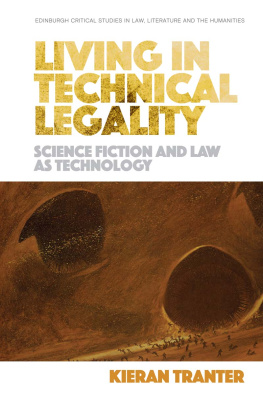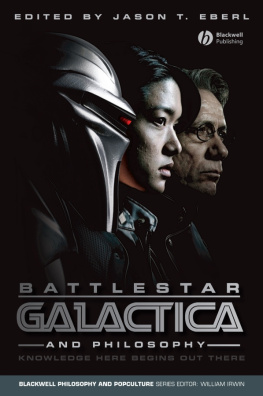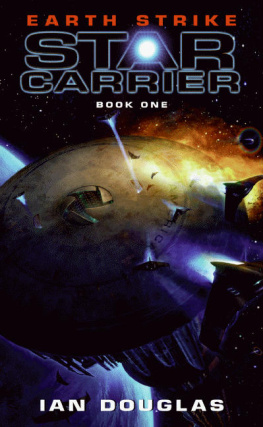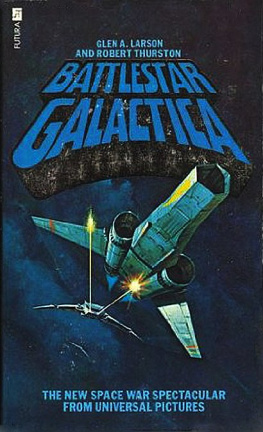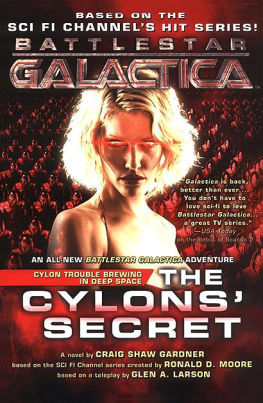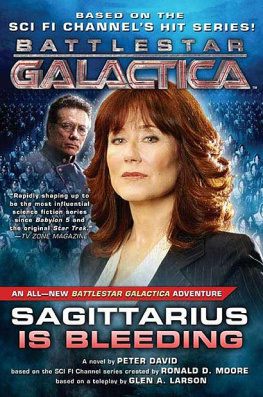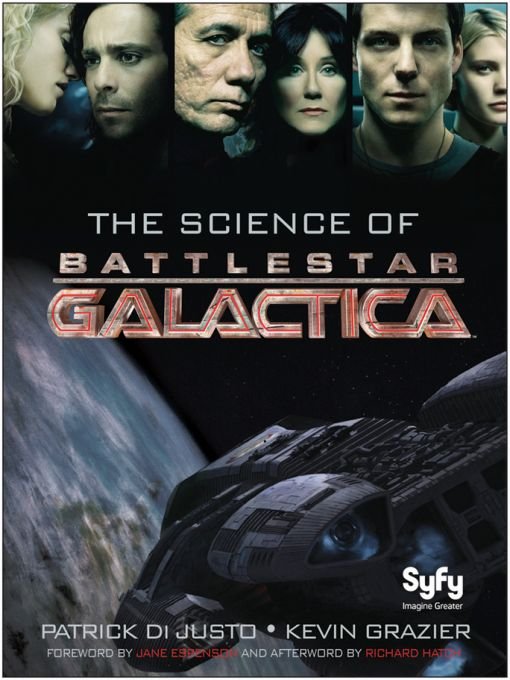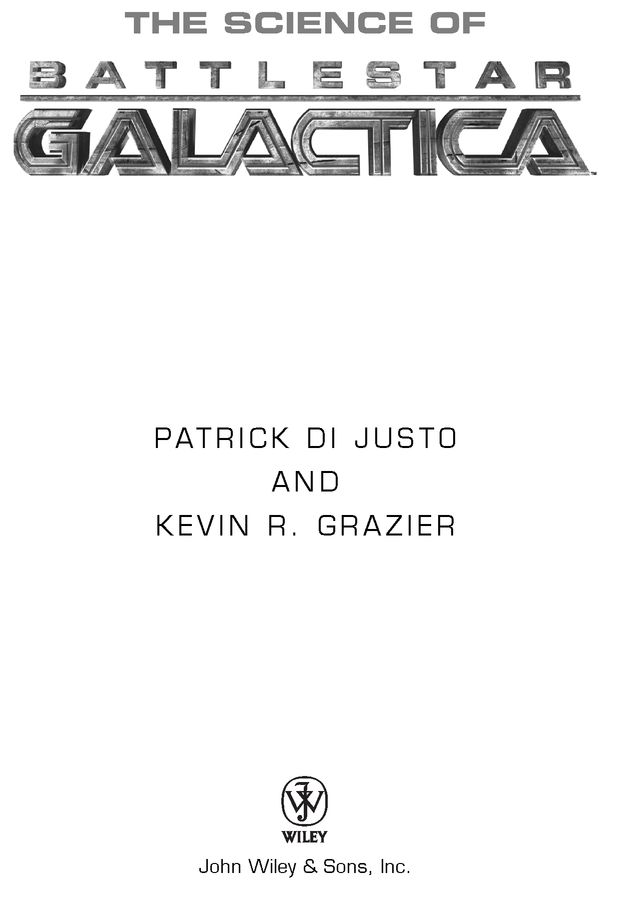Table of Contents
For my mother and the memory of my father
P. D.
To everybody who made
Battlestar Galactica a reality
K. G.
FOREWORD
Im going to tell the best possible story, and I dont care how many geeks I have to offend to get it done.
This sentiment, in various incarnations, is frequently expressed by television writers. What they mean is that theyre willing to ignore science, the what-would-really-happen, in order to tell the most compelling story. And, honestly, that makes sense. A TV writers job is to entertain, after all. Its 30 Rock, not Igneous Rocks. And it is certainly true that the tension in your real-time nail-biter of a detective drama might dissipate somewhat during that realistically long wait while the lab patiently sequences DNA. Settling on a less-than-dramatic story just so that the tiny percentage of viewers who know the science arent tempted to throw thingsit just doesnt seem like a winning strategy.
But the two priorities do not have to lie in opposition to each other. At Battlestar Galactica (also referred to in this book as Battlestar, Galactica, and BSG), writers were not allowed to jettison science for the sake of story. Other than in specific instances of intentionally inexplicable phenomena, science was respected. In this way, Battlestar Galactica resembled the classic tradition of science fiction novels, which didnt see science as a hindrance to the story but as a springboard.
The first episode of Battlestar that I cowrote was called The Passage, and it was all about a risky mission in which pilots escort an instrument-blind fleet through a high-radiation space phenomenon called a globular cluster. The mission was complex in terms of tactics as well as science, a tough one-two punch. My initial instinct was to simplify the mission, the dangers, the scienceto simplify somethingbecause I simply couldnt believe that the fragile tension of a forty-two-minute story could bear for seven of those minutes to be exposition. I wasnt convinced that it would work, in fact, until I saw the completed episode. The meticulous set-up of the strategy and dangers rings true because it is true. At least, it is true to the extent that I captured what I was being educated about during the writing process. (Did you know theres a difference between radiation and radioactivity? Oh, well, thats just me that didnt know, then.)
The sentiment of story over science with which I started this piece still echoed in my ears, even after The Passage, and there was a period during which I had to learn the lesson repeatedly. When I needed something to malfunction on a Raptor, I was surprised to find that I actually had to investigate which of the Raptors functions were controlled by which mechanisms and where they were located. When I needed to describe the effects of death in a vacuum, I needed to resist rumor (Your lungs pop out of your nose!) and find out what really happens. (Your lungs dont pop out of your nose or anywhere else interesting.) And dont get me started on single-event upsets.
Sometimes we writers ignored the advice we were giveneither because there is a limit on the stretchiness of a teleplay to accommodate explanation, or because we really were dealing with a situation that intentionally defied explanation, or just because of limits on our time and skill. But we really tried, and the truism of story versus science seemed less true every time I tested it. In fact, it starts to seem absurd. Truth, generally defined as emotional truth, is a huge part of what makes a good story. Is it so surprising that other kinds of truth would also support, not undermine, the same goal? As the child of a chemist, Im startled it took me so long to realize it.
The man supplying the Battlestar writers with our technical and scientific information was Kevin Grazier. In the time that I was writing for the show he personally advised me on: algae, globular clusters, fuel processing, Raptor thrust and steering mechanisms, CO2 scrubbers, the effects of a vacuum on a human body, SEUs, hypoxia, hypothermia, constellations, the distances of space, Jumping, and a lot of things Ive already forgotten. If the Cylon base ship toilet in one of my first drafts had survived to a production draft, I suspect we wouldve had a talk about it, too. (I saw it as a sort of living pulsing suction-cup-shaped protuberance.)
The point of Battlestar Galactica was not, ultimately, science. It was a show about the human condition, hope, and moral grayness. But science didnt distract us from telling the stories we wanted to tell. It helped us. And Kevin helped us get the science right. So enjoy this volumeif Kevin says its true, it must be so.
So Say We All!
Jane Espenson
Co-executive Producer
Los Angeles
ACKNOWLEDGMENTS
Kevin says: Common wisdom holds that everybody who works in Hollywood does so because they caught their big break. For mine I would like to thank Bryan Fuller for pitching me as science advisor to Battlestar Galactica executive producer Ronald D. Moore. On a related note, I cant thank Ron enough for taking a leap of faith and giving this longtime sci-fi nerd the opportunity and the honor to work on the best show on television, especially after what was likely the shortest job interview in recorded history. Id also like to thank Patrick Di Justo, Giles Anderson, and Connie Santisteban for including me in this project in midstream. Thank you to executive producer David Eick and the cast and crewin particular the writing staffof Battlestar Galactica. Not only did their efforts make this book possible, but everyone was a joy to work with over the span of four they-went-far-too-quickly seasons. Finally, Id like to thank Kendra Not Shaw Penny for all her sacrifices that made my contribution to this book possible. So Say We All!
Patrick says: Id like to thank our Wiley (and wily) editor, Connie Santisteban, who safely shepherded this project through the times when we were under Cylon attack; my agent, Giles Anderson, who convinced me to write this proposal as an exercise and then turned it into a book; the folks at Wired magazine, including but not limited to Chris Baker, Rob Capps, Erik Malinowski, Joanna Pearlstein, Adam Rogers, and Nick Thompson; everyone in the Facebook group The Science of Battlestar Galactica; the BSG-Park Slope triumvirate: Erica Blitz (aka ProgGrrl) of the fansite Galactica Sitrep, superfan and Daily Show writer Rob Kutner, and BSG guest star John Hodgman; my fellow Brooklyn BSG panelists: John Brooks, Ajay Singh Chaudhary, Shane Froebel, and Laura Lee Gulledge; book guru Ellie Lang; Megan Kingery of Science House; pop culture writer Racheline Maltese; the wonderfully supportive people of The WELLs and conferences; and my siblings Andy Di Justo and Melissa Perdock.
This book could not have been completed without Emily Gertz. During the writing of this book, Emily made sure I ate, made sure I slept, stuck with me in the emergency room when my zeal to produce this book put me there, and on occasion would remind me to repeat to myself its just a showI should really just relax.


